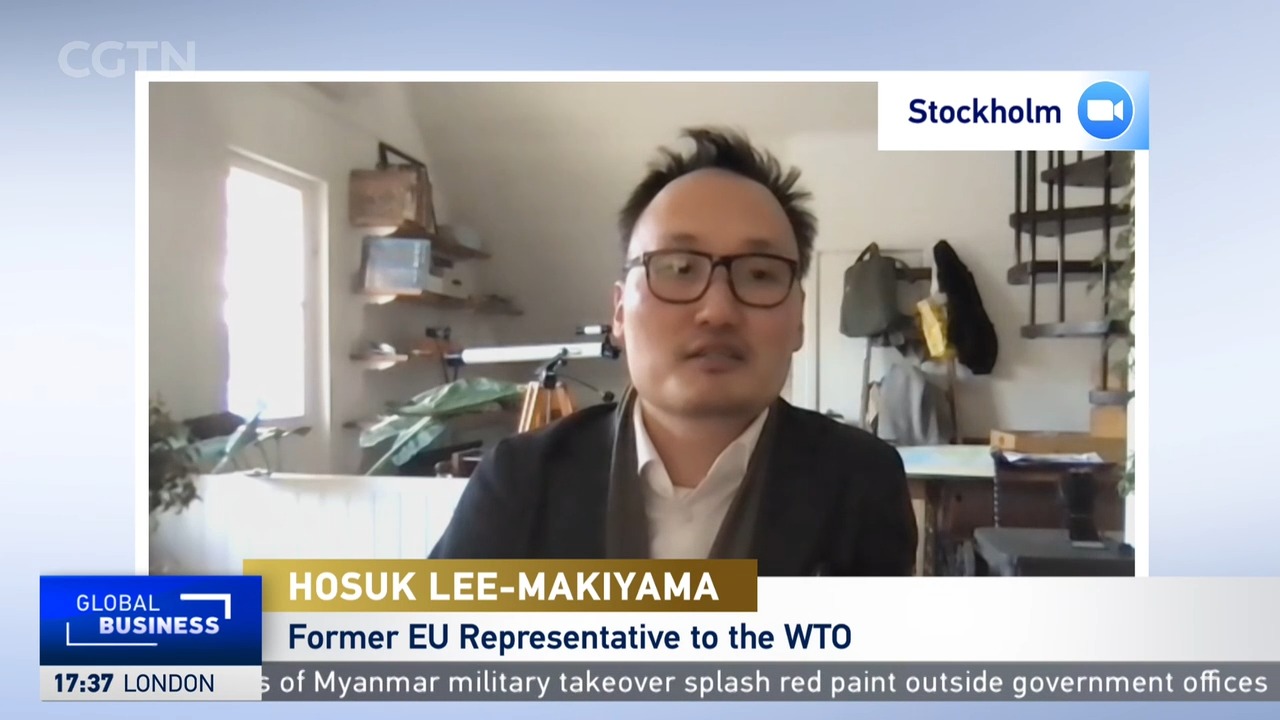03:22

Tackling inequalities in vaccine production and distribution is proving to be another major challenge in the coronavirus pandemic. With just 0.2 percent of doses going to low-income nations, the imbalance is high on the agenda of new World Trade Organization (WTO) Director-General Ngozi Okonjo-Iweala.
In a recent meeting, Okonjo-Iweala made it clear to governments and manufacturers that the WTO wants to be shown to be doing something in a time of crisis. But just how much of a change in direction can we expect from the organization?
CGTN Europe spoke to Hosuk Lee-Makiyama, director of the European Centre for International Political Economy, who praised her vision but also urged caution as vaccine development and allocation is not a natural role for the WTO.
"The ordinary functions of the WTO have been stuck now for almost two decades, so it is actually a very good opportunity for the new director-general to reinvent the WTO by building a new area where it can actually exercise a role, the question is: what role?" Lee-Makiyama explained.
"Okonjo-Iweala has a long background in developing vaccines through the vaccine NGO, which has been basically one of her career paths to this job. But the problem with the WTO, is that it is actually really a member-driven organization, and the director-general and the secretariat merely function as stewards. So, in other words, it's really not a question about what the WTO can do but what countries are willing to agree, with the director-general as an umpire."
One proposal to try to increase vaccine distribution is to temporarily waive intellectual property rights of pharmaceutical companies. This has been put forward by India and South Africa and has the backing of more than 80 WTO members. However, Western economies are more reluctant to back such a move, arguing that protecting intellectual property rights encourages research and a waiver would not lead to a sudden increase in supply.
Lee-Makiyama, who is also a trade diplomacy expert, explained to CGTN Europe he believes the pandemic is being used as an excuse by certain nations to try to end the patent system on other products.
"The truth is that the current rules in the World Trade Organization already allow the members to impose compulsory licensing, in other words, confiscating patents in times like this and it has never been disputed. This is a right that already exists," he said.
"What we are really talking about is actually major pharmaceutical exporters like India that has a keen interest to try to perhaps incorporate and transfer as much technology as possible during the time of the pandemic, but also to be able to export its surplus from India to other countries, including the United States and the EU, where the patent regime actually stopped them."

